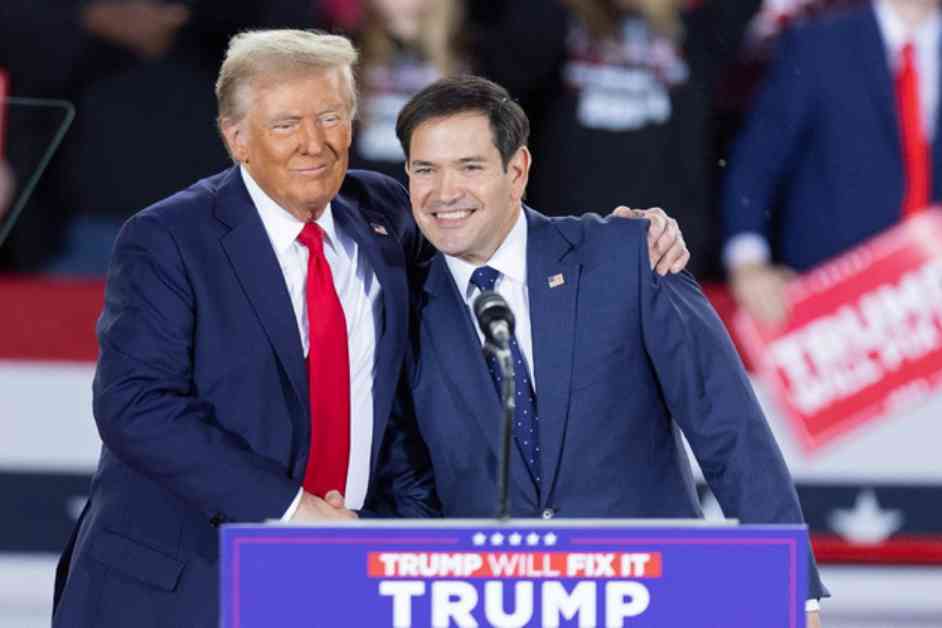The US and Ukraine Diplomats Prepare for Peace Talks to Avoid Yalta 2
A day before the much-anticipated meeting between Ukraine and the United States at the Munich security conference, the top diplomats from both nations engaged in separate interviews to discuss the prospects of a lasting peace amidst the ongoing conflict fueled by the Russians. Foreign Minister Andriy Sybiha expressed concerns about the negotiations possibly mirroring the Yalta Conference of 1945, emphasizing the importance of Ukrainian inclusion in the peace process. On the other side of the spectrum, Secretary of State Marco Rubio reiterated the US interest in Ukraine’s mineral wealth as a form of compensation for significant military aid provided to the country.
Ukrainian Fears and Russian Agenda
The backdrop of history looms large over these discussions as both diplomats strive to navigate the complex web of geopolitical interests and historical precedents. The Yalta Conference, a pivotal moment during World War II, serves as a cautionary tale against repeating past mistakes. Sybiha’s apprehension about a potential Yalta 2 underscores the underlying fears of Ukraine being sidelined in a negotiation between powerful leaders. The geopolitical stakes are high, with Russia attempting to maintain a stronghold on the region while Ukraine seeks to assert its independence and sovereignty.
Rubio’s emphasis on economic interests in the peace talks reflects a pragmatic approach by the United States, highlighting the intricate balance of power dynamics and resource allocation in the conflict. The US has a vested interest in Ukraine’s long-term stability and independence, signaling a commitment to supporting the country’s recovery and development post-conflict. The delicate dance of diplomacy unfolds against a backdrop of historical analogies and contemporary challenges, underscoring the complexities of international relations in the modern era.
Geopolitical Ironies and Diplomatic Turbulence
The choice of Munich as the venue for the peace talks invokes historical echoes of past diplomatic engagements and geopolitical miscalculations. The specter of appeasement and the Munich Agreement of 1938 looms large, drawing parallels between past failures and current negotiations. Sybiha’s call to “fasten our diplomatic seat belts” encapsulates the urgency and gravity of the situation, where every decision and action carries significant repercussions for the future of the region.
Rubio’s unexpected plane incident adds a touch of dramatic flair to the unfolding narrative, highlighting the unpredictability and challenges of diplomatic missions. The mechanical issue serves as a metaphor for the uncertainties and obstacles that diplomats face in their quest for peace and stability. As the peace talks progress, the need for resilience and adaptability becomes increasingly evident, underscoring the high-stakes nature of the negotiations and the intricate dance of diplomacy.
An expert’s analysis sheds light on the broader implications of the US stance on Ukraine and the potential ramifications of a peace deal that involves territorial concessions. The echoes of historical divisions and power struggles reverberate through the contemporary landscape, posing profound questions about the future of Europe and the delicate balance of power in the region. The narrative of Ukraine’s struggle for independence and sovereignty intersects with broader geopolitical currents, shaping the contours of a new East-West divide in the 21st century.
As the diplomats engage in bold diplomacy and strategic maneuvering, the fate of Ukraine hangs in the balance, with the specter of history casting a long shadow over the negotiations. The quest for a lasting peace in the region necessitates a delicate dance of power, interests, and historical legacies, underscoring the complexities and challenges of modern diplomacy. The road to peace is fraught with obstacles and uncertainties, but the shared commitment to a sustainable resolution offers a glimmer of hope amidst the geopolitical turbulence of the present day.

















